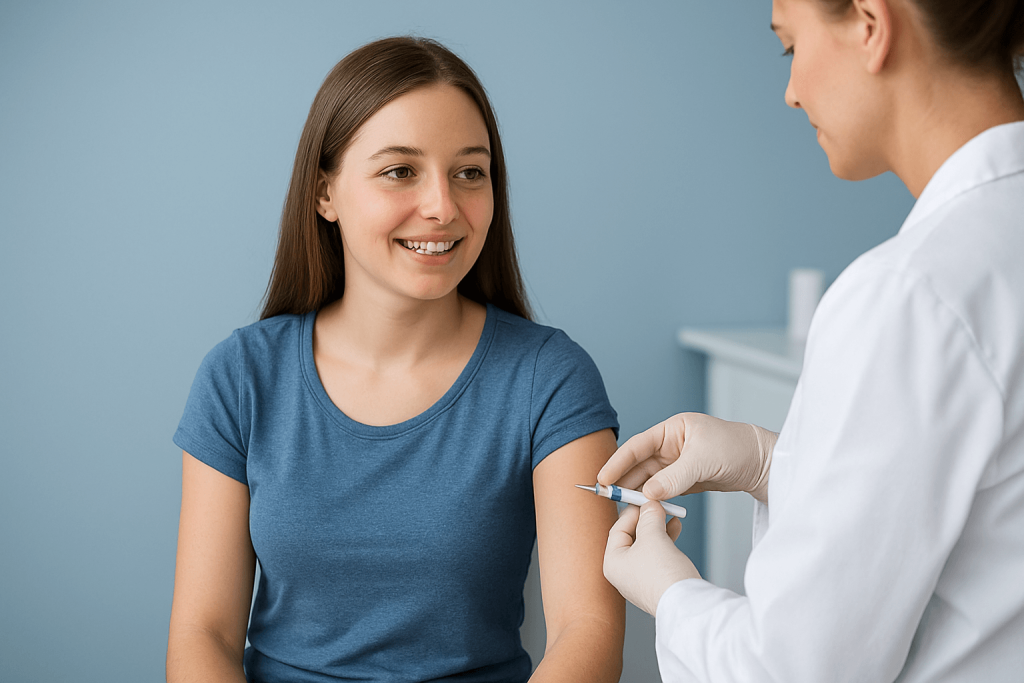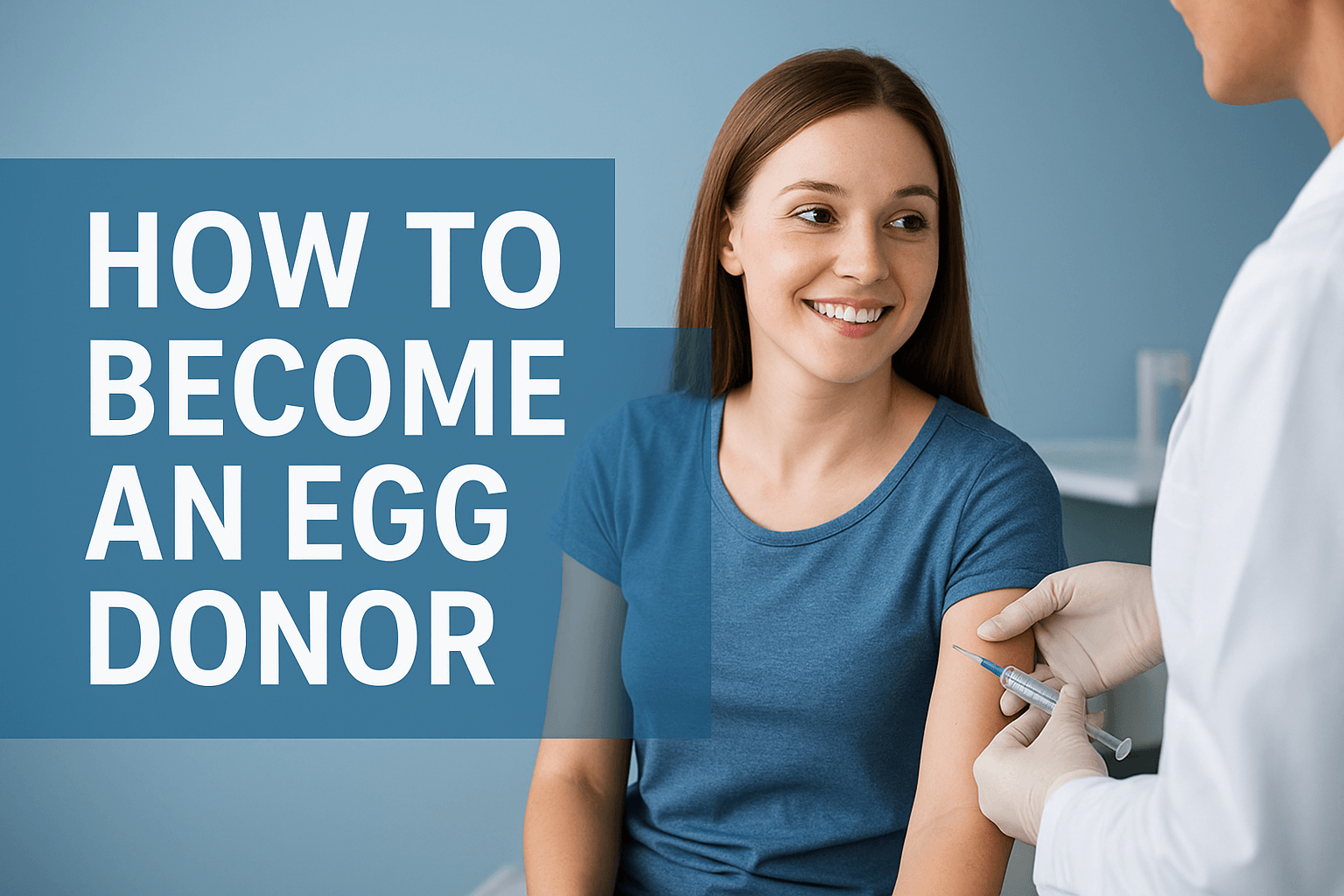The decision to be an egg donor is a life-changing one and should have emotional and practical implications. Egg donation is a choice many women make to help others build families, while also gaining personal fulfillment and, in some cases, financial benefits.
We realise how complicated this decision can be at our clinic. We focus on a caring, open attitude that values your health, well-being, and informed choice is foremost at all times.
Whatever your reasons, be it that you are driven by altruistic intentions, are curious about the whole process, or compensated by the payment, you need to know as much as possible about the process, requirements, and implications.
Why Donate? Emotional Perspectives and Motivations
The reasons that make women egg donors vary. There is also the inclination of some individuals to be able to fulfill the bliss of parenthood for another family. The personal enlightenment and development in fertility care attract others to take part.
To most people, remuneration is a crucial element that supports education, achievements in life or projects. It depends on anonymity and confidentiality, and the donor may donate without long-term obligation except by his/her willingness.
One will mention some donors who say they are finally satisfied with the knowledge that they changed someone’s life; others will recall some tension in the moments of the hormonal treatment period. Seeing that you understand yourself helps you to donate a good experience.
Eligibility & Screening
Egg donor candidates go through screening measures before being accepted to be an egg donor to make sure that they are medically safe, emotionally prepared, and that they are also following the aspects of laws and ethical considerations.
Typical Eligibility Criteria
- Age: A donor is typically between the ages of 21 and 32, based on the specifications of the clinic, to offer the best quality of eggs and the health of the donor.
- General Health: Good physical health is required of donors, as well as a healthy BMI and no chronic medical disorders.
- Lifestyle: They must not smoke; must avoid behaviors such as smoking, excessive drinking, or drug use that could impact treatment success.
- Medical History: No chronic illnesses or health-related issues of reproduction can be encountered that can complicate the donation and affect the outcomes of its recipients.
Screening Process
- Medical Evaluation: Blood, ultrasound, and determination of the level of the hormone are carried out to ensure that the donors can physically endure the procedure.
- Psychological Evaluation: The donors are recommended to evaluate the consistency of emotional preparedness, donation coping mode, and complete awareness of the donation process.
- Genetic Testing: The inherited conditions are detected with the help of the screening in so doing eliminating the risk they can pose on the health of the future children born courtesy of the donated eggs as a result of it.
- Legal Considerations: Contracts protect the rights, duties, and compensation of the donor and the parents to protect them.
Step-by-Step Process
| Stage | Description |
| Application | Submit personal, medical, and family history; initial interview. |
| Screening | Medical, psychological, and genetic evaluations; legal briefing. |
| Ovarian Stimulation | Daily hormone injections for 10–14 days to produce multiple eggs. |
| Egg Retrieval | Minor surgical procedure under sedation; eggs collected using ultrasound guidance. |
| Post-Care | Monitoring for complications, recovery guidance, and emotional support. |
Risks and Benefits
As with any medical procedure, there is no risk-free practice with Egg donation, but serious complications are infrequent.
Common Risks
- Ovarian Hyperstimulation Syndrome (OHSS): It is documented in approximately 1- 5 per cent of cases. It includes distention of the abdomen, nausea, and weak pain, but severe ones are not frequent.
- Procedural Risks: Risks of anesthesia or egg retrieval are low, and they include infection, bleeding, or cramping that lasts for a short time.
- Emotional Considerations: Mood swing is possible through hormonal treatment, and some of the donors may have such moods, but the overall impact of psychological effects will not deteriorate when proper counselling is in place.
Benefits
- Helping Families: Donors can provide the ability for a person d a couple to have children in cases where it is not possible.
- Compensation: The financial remuneration may be able to help in education, travelling, or even in other objectives in life.
- Personal Growth: Lots of donors admit that they have become more empathetic, self-confident, and satisfied with contributing to a positive change.
Emotional outcome measures in different fertility clinics are mostly positive, provided most donors appear content and ready to donate once again should the time come.

Compensation and Ethics
Egg donors are paid different amounts across countries and clinic settings, but in the US, their payment can be between 5,000 to 10,000 dollars per donation cycle. Clinics strictly follow ethical considerations to make sure that financial considerations do not affect voluntary informed consent.
Ethical considerations include:
- Voluntary Participation: Donors must decide to participate on a purely voluntary basis without any pressure, coercion, and pressure.
- Full Disclosure: Donors are taken through exhaustive medical, legal, and emotional risks and given informed consent of the process to move on accordingly.
- Equity and Access: Donation programs aim at having a fair treatment of all involved without exploitation, and opportunities are equal irrespective of economic/demographic status.
The incorporation of ethical and legal standards and the strict following of the transparent policies of compensation is recommended by organizations like the PMC UCSF Global Health.
Statistics and Success Rates
Success rates of IVF with donor eggs are quite high nationally. The success rate of pregnancies using donor eggs is estimated at around 60–80% per cycle, depending on the recipient’s age and the clinic’s experience. The implantation rate of donor eggs is usually higher, as the younger blood and healthy donors are selected.
Donor Perspectives
- It is such a rewarding feeling to know that my donation made someone able to create a family. It was not an easy process; however, the assistance I got helped to make this much easier.”
- I was frightened of the injection and procedure itself, though the team made things clear. I was educated and secured the whole way.”
- The money assisted me in paying off a part of my student loans, and the emotional reward was the best part.
These accounts nail home the experience (either way, overall positive) that donors report.
Legal and Emotional Support
Egg donation is endorsed by well-developed legal systems and emotional support systems
1. Contracts
The rights of the donor, their responsibilities, and confidentiality are regulated in a legal agreement protecting both parties in the donation process (donors and recipients).
2. Counseling
Early and late related psychological support provided to the donor assists in orienting donors, releasing stress, and then making intelligent and educated choices involving donation.
3. Support Networks
Donors gain a sense of community, emotional support, and advice through peer groups and clinic-led programs with information on the donation experience.
4. Anonymity
Stern privacy standards are in place that protect donor identity, and create a balance between the informational requirements of recipients that operate under regulations.
These types of safeguards enable the donors to engage in a process without trepidation; they feel safe because their rights, both legal and emotional, are safeguarded.
FAQs
How many times can I donate?
Most clinics have a limit that donations are not started over six donations during a lifetime, and this is what maximizes donor safety and minimizes medical or emotional risks.
How long does recovery take?
Healing is generally fast, taking 3 or 4 days of mild bloating or cramping. Greater than 75 percent of the donors can go back to routine within 7 days.
Do donors remain anonymous?
Yes, donors are normally anonymous. Nevertheless, there are programs in which semi-open or open donations are permitted when both the donor and recipients consent.
Does donating eggs affect my fertility?
No, fertility is not destroyed in donating eggs. This retrieval results in retrieving eggs that would otherwise have been lost at the time of such a monthly cycle.
Conclusion
The decision to join the egg donor is a meaningful commitment, a presence of being caring, responsible, and self-growing. Donors will also be in a position to contribute to the creation of families through appropriate screening, legal provision of legal rights, and emotional support without placing themselves in danger of being uninformed. We assure your safety and cherish the decision you want at each point in our fertility clinic.
Also Check: How Many Times Can You Donate Eggs

